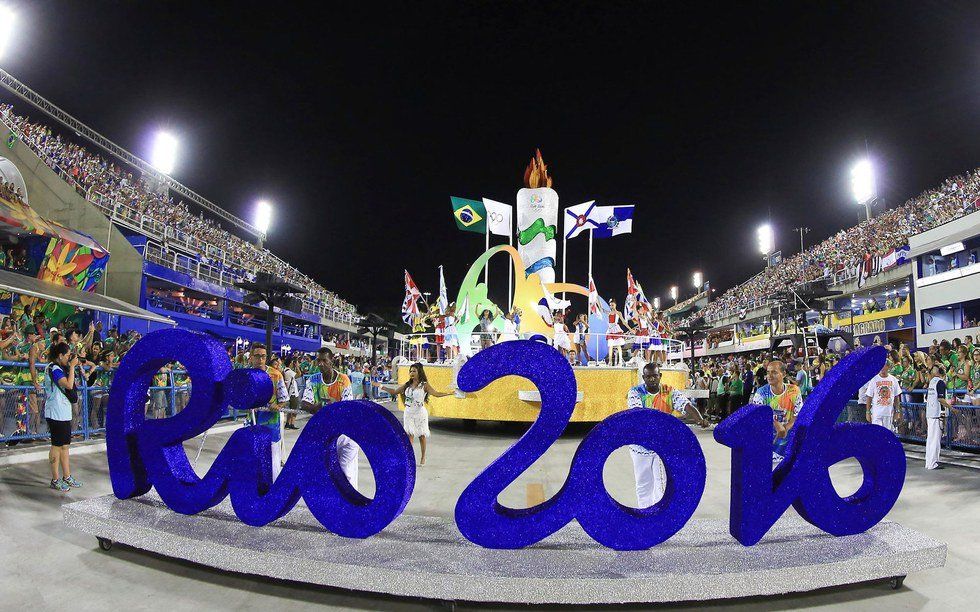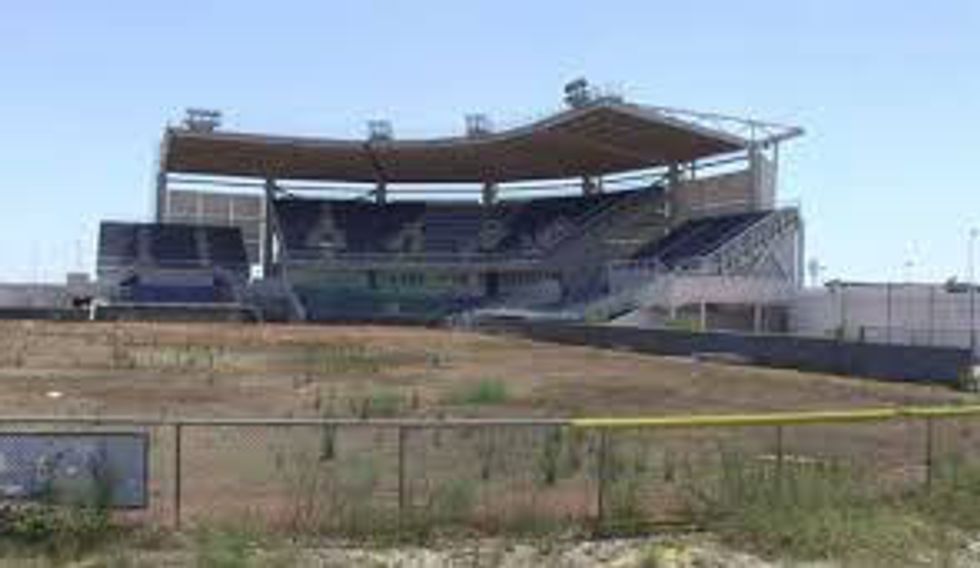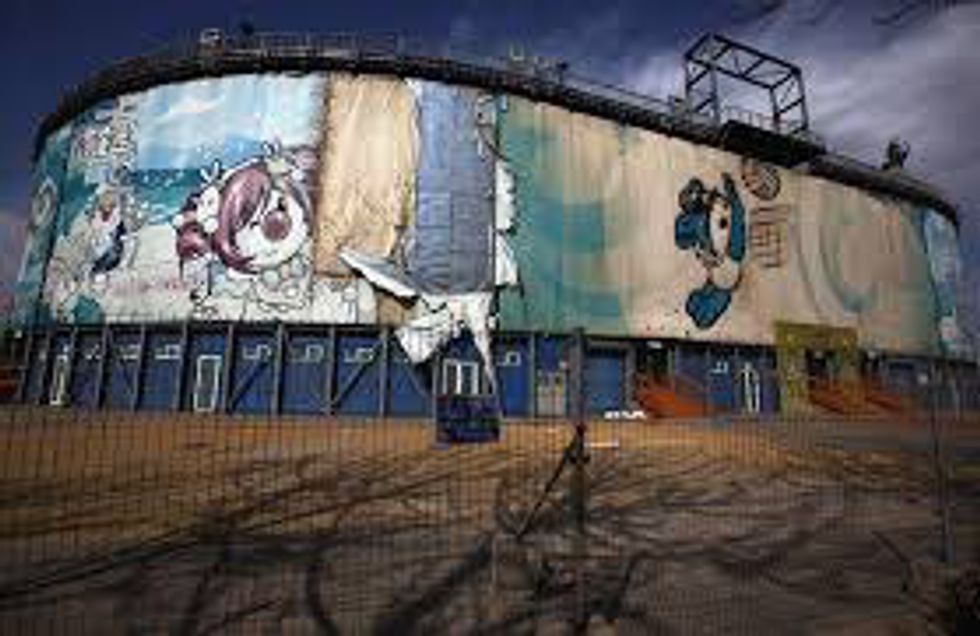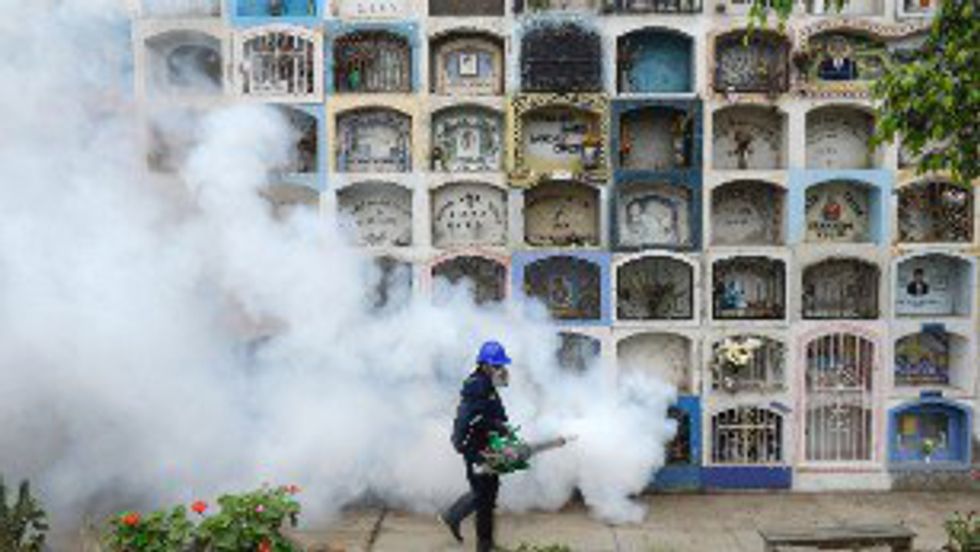The trumpets start to blare. Slowly and softly at first, then resonance sets in and the goose bumps start to rise. You get a chill and your body starts to relax. "A Fanfare for the Common Man." Originally sanctioned for World War II to bring hope to the soldiers, the common men, the fanfare is now one of the most iconic pieces associated with the Olympics. The title of such an auspicious song makes sense to represent a sporting event that unifies that world. The common men and women that represent a nation are represented in an international competition for greatness. So what could possibly be wrong with a representation of nations and awe-inspiring nationalism that happens every four years?
Well a lot.
To begin, the modern Olympic Games we know and love today made a resurgence in 1906. Since then the Summer Olympics and Winter Olympics have taken place every four years, offset by two years. But whomever thinks about how much the Olympic Games actually cost to orchestrate. Or how much economic value they bring for the host city? Obviously something as uniting as the Olympics are cannot have any negative effects, right?
In 1992 when Barcelona hosted the Summer Olympics XXV a $6 billion debt was accumulated. The 2004 Athens Olympics was expected (and funded) to have a $4.6 million allowance, but when it was all said and done ended up costing the country an extra $10.4 million. Chicago spent 100 million just in its bid for the 2016 Summer Olympics and didn’t even win. This doesn’t even include the abandoned Olympic stadiums, used only in those 17 days of glory but never again by the host country.
A field Hockey Stadium from the 2004 Athens Olympics.
The volleyball arena from the 2008 Beijing Olympics.
So. Here we are again. It's mid-summer and the Olympic Games are only a few more weeks away. While the Olympics bring in a tremendous influx of sightseers, sport enthusiasts and nationalists to support their favorite team, a wary eye is also turned toward Rio de Janeiro. The Summer Olympics represents the last leg of a decade worth of international sport spectacles hosted by Rio. Preceded by the Pan American Games in 2007, the FIFA Confederations cup in 2013 and the FIFA World Cups in 2014, the 2016 Summer Olympics brings attention to the mega city unrivaled by any of the other events.
So why, given the international validity of the other events, is this year’s sporting spectacle met with so much negative anticipation?
1. Zika virus
The Zika virus occurs in tropical climates where mosquito populations flourish. Zika is spread through mosquito bites as well as unprotected coitus, which would lead to the virus coming back home with travelers. Particularly affecting pregnant women, Zika can pass to an unborn fetus causing birth defects. What is particularly scary is that there is no vaccine or available medication to prevent nor treat.
To combat this, Brazil has been trying to fumigate virtually the entire country to bring down the mosquito population. Pumping more chemicals in to the atmosphere that can affect various parts of the ecosystem including water and air quality {yay}.
Despite the best efforts of over 150 internationally recognized scientists and medical professionals declaring the games should be postponed or moved, the games will go on.
2. Norovirus
While not as severe as the possible long term effects of Zika virus, Norovirus causes vomiting, diarrhea and general un-wellness. Norovirus does not particularly target countries like Brazil, but when you get a whole bunch of people together germs are gonna spread.
3. Contaminated water
Due to unprocessed sewage being leaked in to a central bay and lagoon, the water now turns the bottom of boats a lovely shade of sanitary brown. While the color may not be too offensive, high levels of viruses and bacteria can also be detected in the water.
4. Parasites on beaches
Samples taken on a popular beach near the Olympic park found parasites like hookworm below the soft sands.
5. Remains also on the beach
Only a few weeks ago on the Copacabana beach (practically the front doorstep to the Olympic Beach Volleyball courts) a missing arm and a foot were successfully located after they washed up on shore. Located meaning some horrified beach goer came across dismembered body parts on a casual stroll on one of the most famous beaches in the world.
5. Rio declared a “state of public calamity"
The economic state of which Rio is in is one of the worst the country has seen in centuries, requesting a federal bailout earlier this year. The resounding lack of funds is especially frightening since it will directly affect the public service paycheck. Yep, limited funds will equal limited public services…like police.
6. Crime
It comes as no surprise there are high crime rates in such a populated city, but Rio’s is one of the highest in the world, coming in at No. 7 on most dangerous cities to travel to. Just last month on June 19, 20 men with assault rifles stormed a hospital to release a drug kingpin.
Also, a woman is 10 times more likely to be raped than to contract Zika. Lovely.
7. Corruption
President of Brazil, Dilma Rousseff (now suspended) was forced to step aside on May 12 because of allegations of budget manipulation; budget funds that should have gone to things like public transportation and maybe that police and firefighter paycheck.
8. Eviction
4120 families have been evicted for construction (77,000 since 2009) of the Olympic Games both in attempt to make room for stadiums and in an effort to “cleanse” the city of those pesky low income citizens and homeless. Even homeless children have been dragged to juvie centers just to get them off the streets and out of sight of incoming tourists.
Bus lines leading from the north part of the city to the south have also been mysteriously cut. Do we even need to ask why? Obviously, there’s no reason to have buses run tourists around low income parts of the city if they can just stay in the nicer parts of town and spend their money. And there aren’t any citizens living in the south part of town that have jobs in the north, right? Naw, of course not.
Instead of addressing issues within the country for citizens, Brazil is addressing issues for the tourists. Walls and barriers are installed to hide "bad parts of town" from curious eyes instead of creating infrastructure to help the residents of these areas. While the Olympics will draw hundreds of thousands of people to the city, they'll all be gone by late August leaving the common men and women of the 26th most populated country in the world to fend for themselves.
So are the 17 days of glory any Olympic city is going to receive worth economic collapse, local infrastructure calamity and few days of rejuvenated nationalism?


























